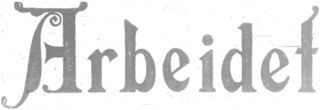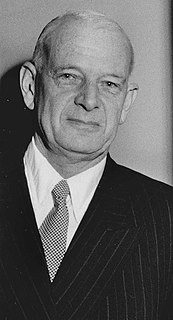Knut Peder Langfeldt (born 14 January 1925) is a Norwegian organizational worker and political science writer.
Political science is a social science which deals with systems of governance, and the analysis of political activities, political thoughts, and political behavior. It deals extensively with the theory and practice of politics which is commonly thought of as determining of the distribution of power and resources. Political scientists "see themselves engaged in revealing the relationships underlying political events and conditions, and from these revelations they attempt to construct general principles about the way the world of politics works."
He lived at Slemdal at a young age. [1] In May 1943, during the German occupation of Norway, he tried to flee the country by boat. However, he was discovered near Abelsnes. He was imprisoned in Flekkefjord, then three days at Arkivet in Kristiansand, before being moved to Møllergata 19. He remained here for a year, except for the time from August 1943 to March 1944 when he was at Ullevål Hospital. [2] He was incarcerated at Grini concentration camp from 14 July 1944 to 4 May 1945. [1]
Slemdal is a neighborhood in the borough of Vestre Aker in Oslo, Norway.

The German occupation of Norway during World War II began on 9 April 1940 after German forces invaded the neutral Scandinavian country of Norway. Conventional armed resistance to the German invasion ended on 10 June 1940 and the Germans controlled Norway until the capitulation of German forces in Europe on 8/9 May 1945. Throughout this period, Norway was continuously occupied by the Wehrmacht. Civil rule was effectively assumed by the Reichskommissariat Norwegen, which acted in collaboration with a pro-German puppet government, the Quisling regime, while the Norwegian King Haakon VII and the prewar government escaped to London, where they acted as a government in exile. This period of military occupation is in Norway referred to as the "war years" or "occupation period".

The German occupation ended on 8 May 1945, and the roles changed. From May to September 1945 he worked as a prison guard for the now-imprisoned Nazis and collaborators. He also joined the Young Communist League of Norway, and came in contact with Peder Furubotn. Furubotn arranged the drafting of Langfeldt into the Parteihochschule Karl Marx in what would become East Berlin, and here he was a contact between the Communist Party of Norway (who knew him only by the pseudonym Karl Quandt) and the German socialist party (who knew him as Kurt Lindenberg). Langfeldt was not a Communist Party member, however. He studied at the college from 1947 to 1949, and later studied at the University of Oslo. From 1957 to 1961 he lived in Geneva, [2] [3] studying for two years and being a correspondent for Dagbladet in the last two years. He worked as information director in the National Insurance Administration before working in the Norwegian Association of Local and Regional Authorities from 1968 to 1992. [4]

Victory in Europe Day, generally known as VE Day or V-E Day, was celebrated on Tuesday, 8 May 1945 to mark the formal acceptance by the Allies of World War II of Nazi Germany's unconditional surrender of its armed forces. The formal surrender of the German forces occupying the Channel Islands did not occur until the following day, 9 May 1945. It thus marked the end of World War II in Europe.

The Young Communist League of Norway was until April 2006 the youth league of Norges Kommunistiske Parti (NKP). 1 April 2006 NKP declared that NKU was no longer its youth organization, and that all youths interested in joining the movement should contact the party directly. NKU still persisted as an organization, however, and held a congress in the middle of May 2006, where it declared its wish to cooperate with NKP, but also to continue on its own if necessary. At the same time NKP organized a conference of their own, where they established a new youth organization for the party, with the same name and logo as the original NKU. This has led to a conflict over the rights to the name, logo, history, international contacts and property of NKU, which lasted until July 2008. The conflict ended in court, where both NKU and NKP was found responsible for the problems that had arisen. However, it was decided that NKU still had the right to their name and logo. Therefore, NKP's re-established version of the Youth League, which had taken up several new members since 2006 had to change its name from Young Communist League of Norway to Youth Communists in Norway and also change their logo. UngKom took over for NKU as NKP's youth league and view themselves as an incarnation of NKU.
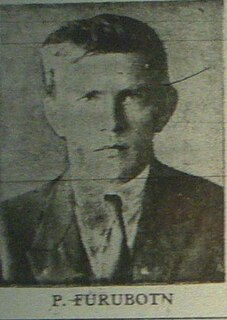
Peder Furubotn was a Norwegian cabinetmaker, politician for the Communist Party and resistance member during World War II.
In 1962 he, together with Jacques Freymond, Henri Burgelin and Miklós Molnár, co-published the 800-page work La Première Internationale on the First International. [5] In the Norwegian language he published the books Moskvatesene i norsk politikk in 1961 and Det direkte demokrati: Rådsrepublikk eller parlamentarisme? in 1966, as well as articles in Historisk Tidsskrift and Samtiden . [3] [3]
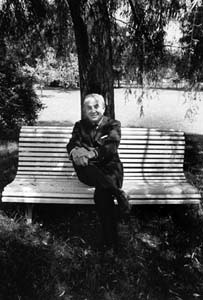
Jacques Freymond was a Swiss political historian.
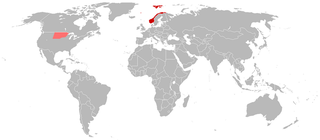
Norwegian is a North Germanic language spoken mainly in Norway, where it is the official language. Along with Swedish and Danish, Norwegian forms a dialect continuum of more or less mutually intelligible local and regional varieties, and some Norwegian and Swedish dialects, in particular, are very close. These Scandinavian languages, together with Faroese and Icelandic as well as some extinct languages, constitute the North Germanic languages. Faroese and Icelandic are hardly mutually intelligible with Norwegian in their spoken form because continental Scandinavian has diverged from them. While the two Germanic languages with the greatest numbers of speakers, English and German, have close similarities with Norwegian, neither is mutually intelligible with it. Norwegian is a descendant of Old Norse, the common language of the Germanic peoples living in Scandinavia during the Viking Era.
Samtiden is a Norwegian political and literary magazine.
Langfeldt has been active in Amnesty International. [6] He married a Swiss woman, and had two children. [3] He resides in Nordstrand.
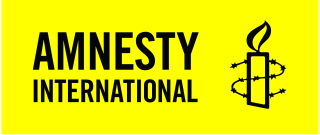
Amnesty International is a London-based non-governmental organization focused on human rights. The organization says it has more than seven million members and supporters around the world.

Nordstrand is a district of the city of Oslo, Norway. It borders Gamle Oslo in the north, Østensjø in the east and Søndre Nordstrand in the south.





